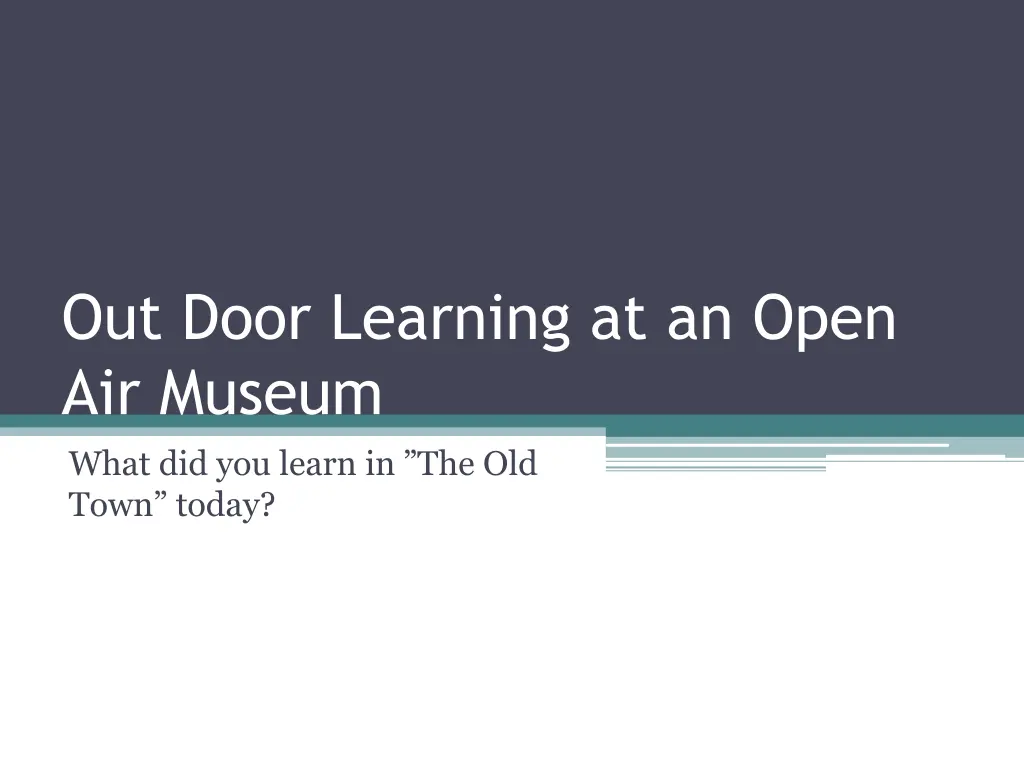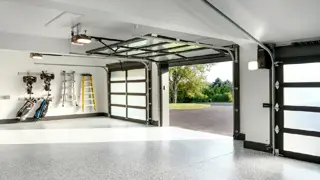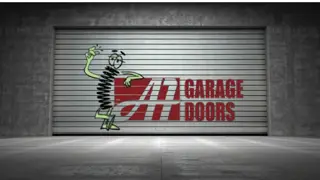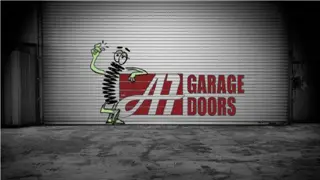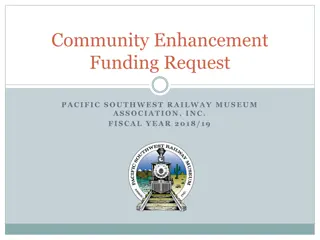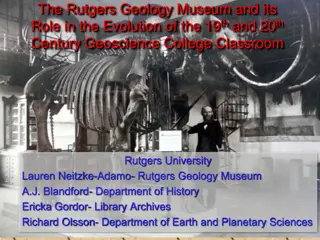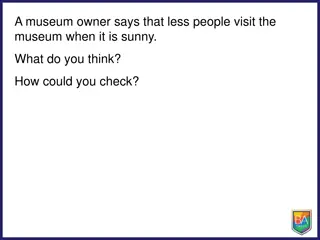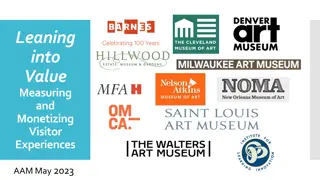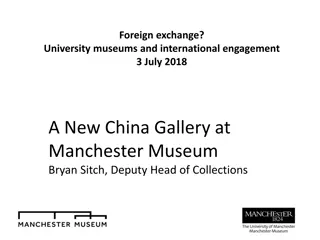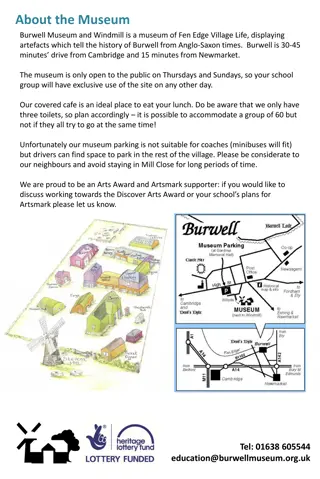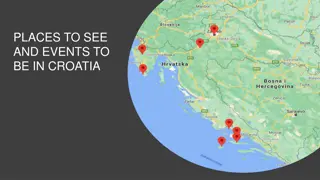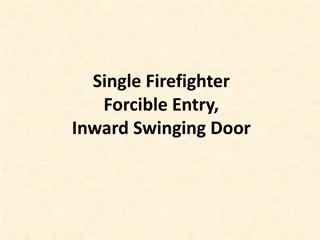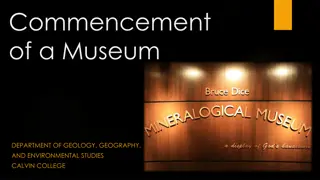Out Door Learning at an Open Air Museum
Discover how students experience school activities at the museum, blending history learning on-site and in the classroom. Assess teacher competencies in this process and explore the unique aspects of outdoor teaching in the Old Town Open Air Museum.
Download Presentation

Please find below an Image/Link to download the presentation.
The content on the website is provided AS IS for your information and personal use only. It may not be sold, licensed, or shared on other websites without obtaining consent from the author.If you encounter any issues during the download, it is possible that the publisher has removed the file from their server.
You are allowed to download the files provided on this website for personal or commercial use, subject to the condition that they are used lawfully. All files are the property of their respective owners.
The content on the website is provided AS IS for your information and personal use only. It may not be sold, licensed, or shared on other websites without obtaining consent from the author.
E N D
Presentation Transcript
Out Door Learning at an Open Air Museum What did you learn in The Old Town today?
Questions How do students experience one day of school activities at The Old Town Open Air Museum? How are their experiences to be qualified into History Learning on location or in the classroom? How to asses the teachers competences in this process? From an out-door perspective, what is specific about teaching in The Old Town Open Air Museum ?
Background Via University College Centre for Didactics Program of Out Door Learning Out Door Learning at The Ole Town . Out Door Learning in History at the Teacher Education and as an interdisciplinary course The Old Town and The Teacher Education Learning Museum a national project 2011 -2013 Many years of practice The school reform in Denmark 2014: The open school .
Old Town Open Air Museum in Aarhus The National Open Air Museum of Urban History and Culture, 1864, 1927, 1974 http://www.dengamleby.dk/the-old-town/ Living Museum: Inhabitans, players not actors The apps The Education Department A day as children in 1864 , a 5 hour s work- shop The ideal of Aesthetic Learning and drama as a way to insight
Drama as a way to insight Feelings and senses Meeting History: Designed and intended AESTETIC EXPERIENCE Knowledge Reflection
Method of this little study Observation of school classes 4. -8. grade Semi-structured interviews with museum teachers/players Exercises from 3 classes (4th grade) Weaknesses/strenghts
The observations of the school classes The preparation at home: Why are they in The Old Town ? The preparation by the player: preparation for the play or for the society and people in 1864? The transformation to children 1864: The clothes, the behavior, the status as a child, girl and boy The work at the Merchant s Estate: What is at stake for the students? Part of the play in 1864, part of the class, part of the museum, part of the visitors and the other visiting school classes. Hard work, no breaks, boys come first ect. Seen not heard The school lesson: Disciplin, doing hymns by heart, punishment, injustice, to be late ect. The reflection hour: What is different, what is alike, what was good and bad in 1864 and today? Comparison. The teachers role: In the back ground or in the front?
Why Out Door Learning optics at a museum as The Old Town ? Concepts developed by Dr. Arne Nikolaisen Jordet The Learning Loop Authenticity and historical consciousness, learning by doing , loosening up the groups in the class, learning in teamwork, performance and confidence Connecting knowledge to action as a variation of the text based learning connecting knowledge to reading and talking.
Concepts of museum didactics Prof. Olga Dysthe: the Dialogue based learning at Museums of Arts Dr. Helene Illeris and Dr. Lise Sattrup: Situational competence and situational production. Prof. Mads Hermansen: The teacher competences in feed-forward, the middle phase, and feed-back. Is it possible to achieve an aesthetic experience and to learn history/ stimulate the historical consciousness at the same time? Prof. Cornelius Holtorph: The time travellers at The Land of Legends in Lejre at Asterix Time
Home/classroom Out Home/classroom Preparation, Knowledge Teacher introduction Experience No Teacher interference The students are studying/having experiences Aesthetic production Situational Competences? Learning by doing Reflection Teacher guides the reflections in cooperation with th e students After processing Situational Competences? At Old Town Open Air Museum Authentic learning Authentic experience? Stimulating historical consciousness Symbolic learning Symbolic learning Qualitifying historical consciousness? Every day historical consciousness
What did you learn in The Old Town today? Different perspectives The teachers: Backing up or obstructing the students learning? An integrated part of the daily teaching? The players/teachers at the museum: The timetravelling and history learning, the preparation of the classes. Priorities. The Open Air Museum as the authentic reality or trivialised backdrop for learning/ Tivoli ? The students: Openminded and curious! Ready for the experiment and action.
The students experiences Hard work but fun, working like slaves The players were scolding and making contradictive orders Unfair punishment, we could not do anything right everything was wrong. The clothes: heavy, funny, beautiful Hard not to talk and not to be heard Have learnt that it was hard to be a child in 1864 More disciplin in 1864 The worst: To clean up in the yard at the Merchant s Estate The best: working together
Qualifying Historical Consciousness? The concept of Historical consciousness from Bernard Eric Jensen with inspirations from Erik Lund and Andreas K rber. Comparison between the past and the present? Yes. 1864, Asterix Time or just The old Days ? Is it relevant for the students? Yes, they find it relevant The use of the expert knowledge of the players about life in 1864? Historical consciouesness as competence in questioning? Yes. Methodical competence? Connecting knowledge to action. Competence in Orientating? Reflections of life conditions in the past and present. Qualifying process on location or in the classroom? Both places, with the players in reflection hour, with the teacher in the classroom. Qualifying processes on location must be trained as well as the processes in the classroom.
What did you learn? Considerations The drama concept of Old Town The out-door concepts: Teamwork, the social and practical competences. Home Out Home. All 3 phases! Aesthetic experience and learning, situational competences and - production The students view: To be put aside, hard work, unfairness, to be yelled at, nice to make teamwork, practical activities The time travelling. The transformation. Authenticity? Stimulating historical consciousness? Qualifying concepts of 1864? The teacher competences in the 3 fases: recognizing different skills, recognizing different routes to historical knowledge and decontextualising of a part of the teaching History teaching including out-door learning and integrating school activities in an Open Air Museum as The Old Town means focused historical knowledge and the ability to change roles as a teacher Don t bring the classroom out of it?
